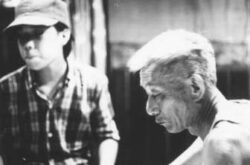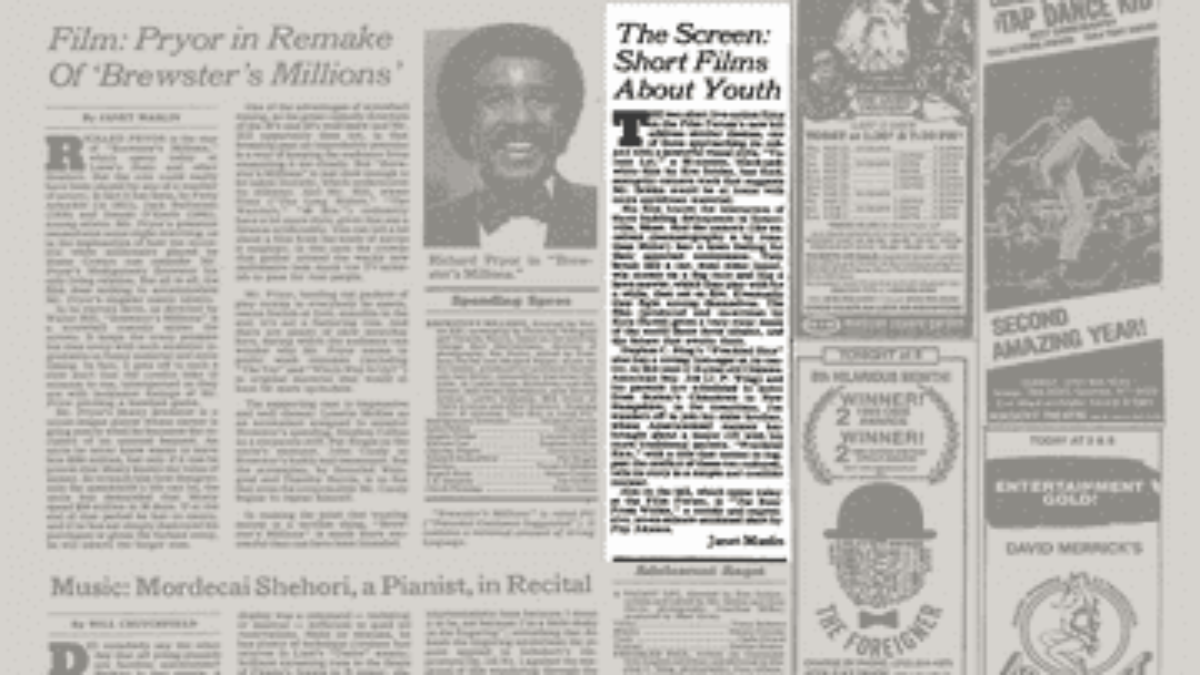Coming of age in Chinatown is hardly an individual experience; it’s a family affair.
“Freckled Rice,” a 1983 film directed by Stephen C. Ning, is a story about 13-year-old, American-born Joe Soo (J.P. Wing) who grows up in Boston’s Chinatown in the 1960s. Joe’s father (Steve Chen) runs a Chinese restaurant, but plans to move his family to the suburbs in New Hampshire, claiming that Chinatown is “dried up.”
The film documents the honest anxieties within the multigenerational Asian American family: the growing distance and cultural misgivings between Chinese parents and their Chinese American children. There’s a fundamental question here that posits “Freckled Rice” in the larger discourse for Asian Americana: What is the future of the children of the diaspora?
When the film begins, Joe and his best friend run around his father’s restaurant before its grand opening. They’re both wearing black suits and red baseball caps, goofing off when someone yells at him, “Want to be a waiter? Forget it. You American-born can’t take it.”
This is only one of many incidents throughout the film where the adults don’t seem to understand Joe, or the American youth culture he embodies. At home, when he plays “I Put A Spell On You” by Screamin’ Jay Hawkins on the record player, his father comments, “They think they’re in Africa, playing jungle music.”
Even as Joe is estranged from intimacy with his parents, he grows close to his grandfather (T.K. Lui) and older brother Wilson (Michael G. Chin). Wilson has moved out of the home, accompanied by his white, blonde girlfriend. “I don’t know how you feel about Chinatown,” Wilson explains to Joe, “But it feels like having a thousand fathers. Everyone telling you what to do.” For Joe, hanging out with Wilson is the embodiment of freedom.

(Image Credit: Steven C. Ning/Freckled Rice)
While the film is heavily guided by Joe’s perspective, we still get insight into his parents’ anxieties. Joe’s mother (Arabella Hong) angrily scolds her husband for being too controlling. She attributes his stubbornness to fear that his children will become too American and “able to think for himself.” Joe’s father responds with an equal frustration, “Don’t I do enough for you all? I’m just trying to do what’s best. You’d think that I don’t do anything.”
Ning’s “Freckled Rice” may be a coming-of-age story about a young boy growing up in 1960s Chinatown, but it reveals that it is as much a family drama across three generations. More than the explicit conflict of the family’s move out of Chinatown, the film is filled with unspoken tension of what the family members are unable to tell each other. Joe’s grandfather performed manual labor in the kitchens to provide for his son, but is upset that his son plans to leave him behind in Chinatown. Joe wants to be recognized as his own independent person by his father, enjoying the American culture he grows up with. For an early film on an Asian American ethnoburb, “Freckled Rice” is filled with complex characters with desires that collide against each other.
However, while there is an omnipresent fear of the “Americanization” and cultural loss that occupies the adults’ minds, history shows how culture does not necessarily adhere to this extinction narrative.
Today, Boston’s Chinatown is the only surviving Chinatown in New England. The last time I walked through Chinatown, the streets and buildings were scattered with billboards and campaign posters supporting Michelle Wu, who was elected Boston’s first Asian American mayor. Watching “Freckled Rice” left me with a warm feeling of nostalgia. Chinatown has not, in fact, “dried up,” but has a future that continues to live and transform with its residents, who nurture it in their own ways.
“Freckled Rice” is part of ACV Classic. It re-screened at the 45th Asian American International Film Festival. Co-producer Yuet-fung Ho contributed a postscript.

